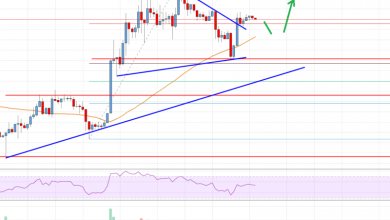
New Law in South Korea Could Legitimize Digital Currency
South Korea is introducing its citizens to a new law that’s likely to set crypto on a very legitimate path.
South Korea Initiates New Crypto Law
The law requires that South Korea obey all international financial regulations and adhere to know your customer (KYC) laws for all its digital trading platforms. This will lessen the chance of money laundering, terrorist financing and other illicit activities.
South Korea, at one point, was one of the world’s biggest cryptocurrency hubs. The nation accounted for nearly one-quarter (about 25 percent) of the globe’s total crypto transactions, but in the end, it took a route similar with China and sought to ban various cryptocurrency projects such as initial coin offerings (ICOs) as a means of combatting criminality.
Thus, much like China’s, South Korea’s crypto underbelly fell into the dark and dismal waters of oblivion.
However, this new string of legislation also suggests that crypto is important to regulators in the nation. At the time of writing, South Korea is dealing with several issues, including the outspread of the coronavirus. Despite all this, the nation still took the time to carve out a little spot for cryptocurrency, thereby suggesting that crypto serves a lofty purpose in Korean society.
The nation also recently unveiled a whole new string of digital currency ATMs that would allow users to exchange their native currency – the won – for Litecoin units. Litecoin emerged from a bitcoin hard fork in the year 2011, and currently stands as the sixth largest cryptocurrency by market cap.
In 2017, a national survey suggested that approximately one-third of South Koreans invested in cryptocurrencies, with most holdings containing both bitcoin and Ethereum. In addition, the country has also tampered with the idea of releasing its own cryptocurrency called the S Coin, though this goal has seemingly been put on hold.
Despite the region’s inherent attempts to limit the amount of crypto and blockchain activity in the nation, several of South Korea’s largest companies – including Kakao – have continued to invest in crypto, believing it’s the financial wave of the future.
Digital assets appear to be taking a stronger hold on governments everywhere. Recently, it was announced that India – which implemented a strict crypto ban in 2018 – would remove any limitations placed on crypto activity. The ban was voted unconstitutional by the country’s highest court, and investing is expected to increase tenfold.
India Says “Hello” to Crypto
While digital assets themselves were never banned, limits were instead placed on banks and other financial institutions that prevented them from offering their services to crypto-based businesses. This resulted in several of the region’s top crypto trading platforms, including Zebpay, closing their doors and relocating.
The ban was initiated by the Reserve Bank of India (RBI), which has failed to prove that crypto could damage India’s infrastructure according to the country’s Supreme Court.
Source: livebitcoinnews.com
View original post





